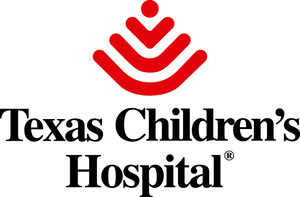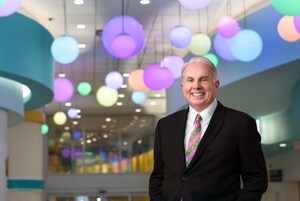Texas Children's Hospital performs more liver transplants than any other pediatric hospital in the nation
The lives of 39 children were saved with liver transplants by Texas Children's in 2012
HOUSTON, Jan. 31, 2013 /PRNewswire-USNewswire/ -- Texas Children's Hospital in Houston announced that in 2012 the hospital saved the lives of 39 children through liver transplantation, making it the most active pediatric liver transplant center in the nation and one of the most active in the world. To learn more about liver transplantation at Texas Children's Hospital please visit texaschildrens.org/liver-transplant.
Unfortunately, children can face a myriad of diseases that impact the liver leaving transplantation as the only treatment option. These include: biliary atresia, the most common reason for liver transplantation in young infants; a range of metabolic and genetic liver diseases, such as alpha-1-antitrypsin deficiency, familial intrahepatic cholestasis (FIC), organic acidemias and cystic fibrosis liver disease; Alagille Syndrome; and unresectable liver tumors, such as hepatoblastoma, the most common liver cancer in children. At any given time Texas Children's typically has 20 children in need of a liver transplant.
"The longer children wait for transplants, the sicker they become," said Dr. Ross Shepherd, director of the Liver Center at Texas Children's Hospital. "As medical care providers one important job prior to transplantation is to keep these children as well as possible for as long as possible to get them to their transplant."
Luckily for children waiting for a liver transplant they do not always have to wait for a child donor. Adult liver donors can help save the lives of children also as this is an organ that can be split and shared among transplant recipients. What this means is that more than one life can be saved by one donor liver. For instance, a liver could be split with a child taking the smaller section and an adolescent patient or adult taking the larger.
"As surgeons many times the first cut we make with pediatric liver transplantation patients is not to implant the new organ, but rather to split the liver into a smaller section that will fit inside the child and a larger piece that can save the life of an adult waiting for a transplant," said Dr. John Goss, medical director of the Transplantation Program at Texas Children's Hospital.
From infants, to young adults, the team at Texas Children's can transplant patients of all ages.
"It is most difficult to find donors for our adolescent patients because they are still considered children but tend to need a larger liver so many times they will have to wait for an adult liver of their own or an adult recipient who will agree to split their donor liver," added Goss, who is also professor and chief of abdominal transplantation at Baylor College of Medicine (BCM). "This is why organ donation is so important. By registering you are potentially saving the lives of multiple individuals."
The Liver Center at Texas Children's also works very closely with The Biliary Atresia Clinic and the Liver Tumor Center at Texas Children's Cancer Center. These unique clinics bring together renowned specialists in all aspects of their relative conditions, utilizing a multidisciplinary approach to provide the most comprehensive and innovative care for children to support the needs of all patients and families. In fact, the Liver Tumor Center is the first of its kind in the U.S.
Outcomes
Texas Children's Hospital has among the best liver transplant outcomes in the country. Three, independently measured, outcomes metrics are one year post-transplant survival rates, the percentage of children who don't reach transplantation and the rate of re-transplantation. In 2012 Texas Children's had one of the highest one year post-transplant survival rates in the country and one of the lowest re-transplant rates.Outcomes for all major transplant programs in the country are published publicly and can be viewed on the Scientific Registry for Transplant Recipients (SRTR).
Additionally, Texas Children's recently earned a national certification from the Centers for Medicare & Medicaid Services (CMS) for liver transplantation. For insurance providers looking for pediatric transplant programs, CMS certification serves as an easily recognizable designation that denotes the level of care that can be expected. For families, they can expect that same level of high quality care as well and, if necessary, increased out of network support from their insurance company to receive care at Texas Children's Hospital.
Texas Children's also has one of the busiest intensive care units in the nation, and a first class critical care team that is vital to the positive outcomes of pediatric patients with a variety of life-threatening illnesses. The Critical Care team cares for children with liver disease both before and after liver transplant and makes a very important contribution to their excellent outcomes.
With Texas Children's expertise and proven outcomes in liver transplantation the hospital has been able to help save the lives of children from all over the Southeast U.S. Additionally, with Texas Children's close relationship with the Ronald McDonald House of Houston who provide a home away from home for families while their children are in the hospital, families from out of town can rest assured that they have a safe, loving and comfortable place to stay that is close to their child at all times.
Research
The team at Texas Children's is committed to understanding and helping to negate the complications patients face as a result of their liver transplant. Texas Children's is a part of a multicenter National Institutes of Health-funded research grant to determine how to minimize the side effects pediatric patients face with the immune suppression, or anti-rejection, medications they take. After transplant, children can face a number of issues including an increased risk of developing infection – making these children more susceptible to other illnesses, increased risk of secondary problems, long term growth issues and skin complications. The 10 centers involved in this research are looking for ways to allow children who have received liver transplants to eventually stop taking these immune suppression drugs, which transplant recipients typically take for their entire life, as a way to minimize or eliminate these side effects.
Life post-transplant
Aside from the side effects related to their medications, pediatric liver transplant patients typically enjoy a very positive quality of life after their transplant.
"The liver is the one organ that once transplanted can renew itself. A very long, high-quality life is now the norm after liver transplantation in children," Shepherd, who is also a professor of pediatrics in the section of gastroenterology at BCM, added.
About Texas Children's Hospital
Texas Children's Hospital, a not-for-profit organization, is committed to creating a community of healthy children through excellence in patient care, education and research. Consistently ranked among the top children's hospitals in the nation, Texas Children's has recognized Centers of Excellence in multiple pediatric subspecialties including the Cancer and Heart Centers, and operates the largest primary pediatric care network in the country. Texas Children's has completed a $1.5 billion expansion, which includes the Jan and Dan Duncan Neurological Research Institute; Texas Children's Pavilion for Women, a comprehensive obstetrics/gynecology facility focusing on high-risk births; and Texas Children's Hospital West Campus, a community hospital in suburban West Houston. For more information on Texas Children's, go to www.texaschildrens.org. Get the latest news from Texas Children's by visiting the online newsroom and on Twitter at twitter.com/texaschildrens.
About Baylor College of Medicine:
Baylor College of Medicine (www.bcm.edu) in Houston is recognized as a premier academic health science center and is known for excellence in education, research and patient care. It is the only private medical school in the greater southwest and is ranked as one of the top 25 medical schools for research in U.S. News & World Report. BCM is listed 13th among all U.S. medical schools for National Institutes of Health funding, and No. 2 in the nation in federal funding for research and development in the biological sciences at universities and colleges by the National Science Foundation. Located in the TexasMedicalCenter, BCM has affiliations with eight teaching hospitals. Currently, BCM trains more than 3,000 medical, graduate, nurse anesthesia, and physician assistant students, as well as residents and post-doctoral fellows. BCM is also home to the Baylor Clinic, an adult clinical practice that includes advanced technologies for faster, more accurate diagnosis and treatment, access to the latest clinical trials and discoveries, and groundbreaking healthcare based on proven research. Follow Baylor College of Medicine on facebook (http://www.facebook.com/BaylorCollegeOfMedicine) and twitter (http://twitter.com/BCMHouston).
Contact: Elizabeth Shackouls
832-824-2108
[email protected]
SOURCE Texas Children's Hospital
WANT YOUR COMPANY'S NEWS FEATURED ON PRNEWSWIRE.COM?
Newsrooms &
Influencers
Digital Media
Outlets
Journalists
Opted In






Share this article